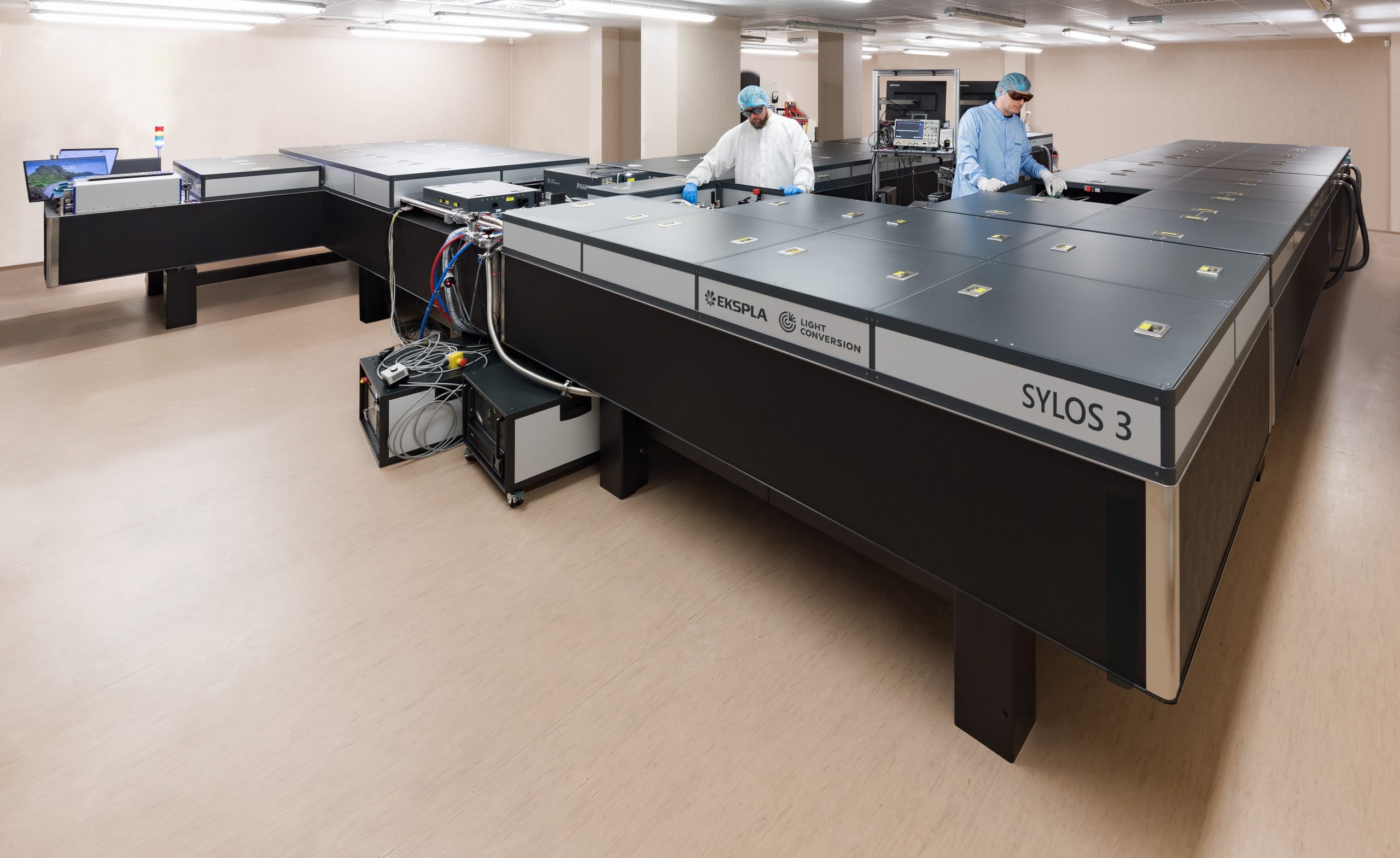

SYLOS 3: High-Intensity Leaps in Fundamental Research
SYLOS 3, a high-intensity laser system featuring groundbreaking parameters, has went through the final installation stages at ELI ALPS (Extreme Light Infrastructure Attosecond Light Pulse Source). The exceptional feature of the system is that it delivers 15 TW of peak power at a 1 kHz repetition rate and an 8 fs pulse duration. Kilohertz repetition rate enables researchers to collect significantly more data and, thus, improve the efficiency of experiments.
The system has been built by a consortium of EKSPLA and LIGHT CONVERSION. The whole project, from the beginning to the final acceptance protocol, took almost 3 years and is estimated to cost up to 6 million euros. Compared to the SYLOS 2A system (4.5 TW, 6.3 fs, 1 kHz) already operating at ELI-ALPS, the new system will provide more than three times higher peak and average power.
Unlike other TW-level systems available in the market that operate in a single-shot or low repetition rate mode, SYLOS 3 will run at a 1 kHz repetition rate. With this novel approach, researchers will be able to collect significantly more data and transition from fundamental to applied science experiments. Such systems enable the development of promising future technologies, such as laser-based particle accelerators.
“We will employ the ELI-ALPS laser system in a wide range of experiments, such as generating coherent X-ray radiation through gas, electron acceleration and surface higher-order harmonic generation,” said Adam Börzsönyi, Head of the Laser Sources Division at ELI-ALPS. “The generation of isolated attosecond pulses for attosecond metrology is another important application. These kinds of experiments demand high stability of operation with high uptime, so the stability and precision of the whole system were one of our top priorities.”
“We are proud to have a partner like ELI-ALPS. Our 9-year partnership with ELI-ALPS has helped us learn a lot about high-intensity pulses,” mentioned Aldas Juronis, CEO of EKSPLA. “Due to the exceptionally large XUV/X-ray energy, this system opens the door to nonlinear XUV and X-ray science, as well as 4D imaging and industrial, biological, and medical applications. In this way, we are equipping researchers with the proper tools to make breakthroughs for a better future.”
“The SYLOS3 laser system is based on OPCPA (Optical Parametric Chirped-Pulse Amplification) technology,” said Dr. Martynas Barkauskas, CEO of Light Conversion. “Introduced at Vilnius University, OPCPA today is one of the key technologies for generating high-intensity radiation, surpassing conventional femtosecond technology based on Ti:Sapphire lasers in terms of pumping efficiency, contrast, bandwidth, and, consequently, the degree of control over the generated radiation.”
To ensure reliability and cutting-edge parameters, the system has been built from scratch by employing industry-tested technologies and components. All design and manufacturing activities have been carried out in facilities in Vilnius. Thus, despite its complexity, the system ensures exceptional stability and reliability. SYLOS 3 delivers approximately 120 mJ pulses with a CEP (Carrier-Envelope Phase) stability of less than 250 mrad and pulse energy stability of less than 1%.
The main objective of the ELI-ALPS project is to create a unique European research center, providing the international research community with exceptional laser pulses and secondary sources. The Szeged facility stands out among institutes producing the highest intensity laser pulses in the world at a 1 kHz pulse repetition rate.




